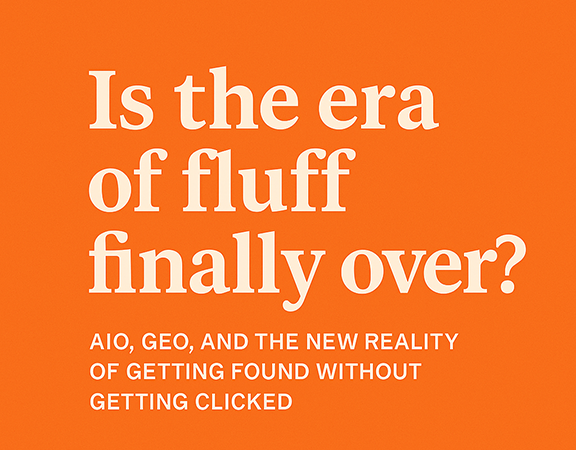Brand Marketing vs. Brand Awareness: Understanding the Difference
When you think about your favorite brand, what comes to your mind? Is it the logo, the colors, or something else? You may notice that these elements all play a role in forming your perception of the brand. But understanding a brand goes far beyond its logo or colors. It’s about the values and the culture it stands for. Today, we’ll explore the difference between brand marketing, specifically brand identity, and brand awareness, and why brand awareness takes precedence.
What is Brand Marketing and Brand Identity?
Let’s start with brand marketing. This is a strategy that businesses use to shape their identity, a kind of personality, if you will. It’s a bit like how we choose our clothes or decorate our room. We want to show who we are to the world. Similarly, a company uses brand marketing to express its identity through colors, logos, and designs. They want to be recognized and remembered.
Nike: A Brand Marketing Powerhouse – More Than Just a Sports Brand
When it comes to brand marketing, few companies do it better than Nike. Their strategy goes beyond just showcasing their logo or using a catchy tagline. Nike has established itself as a socially conscious brand that stands firmly on societal issues. Their approach to brand marketing provides an excellent case study for businesses looking to increase their brand awareness.
Nike’s brand marketing takes a stand on critical social issues, engaging their audience on a deeper level. One notable example is their ad campaign with Colin Kaepernick, the NFL player who famously kneeled during the National Anthem to protest racial inequality and police brutality.
By choosing Kaepernick as the face of their 30th anniversary “Just Do It” campaign, Nike made a clear statement about where they stood on the issue of racial equality. The tagline, “Believe in something. Even if it means sacrificing everything,” emphasized the brand’s commitment to this cause. This move stirred both criticism and praise, but it also sparked a global conversation. Nike didn’t shy away; they leaned in.
A Broader Picture: Social Engagement
But Nike’s commitment to social issues doesn’t stop there. They’ve promoted equality and inclusivity through various initiatives, such as their commitment to the UN Climate Change and Fashion Industry Charter for Climate Action. Nike understands that their audience cares about these issues, and they’ve used their platform to engage and educate.
Nike’s approach to brand marketing illustrates how companies can increase brand awareness by going deeper than their products or logos. They have shown that companies can stand for something and align themselves with their customers’ values. By doing so, Nike has not only sold sneakers and sportswear, but they’ve also promoted a culture and a set of values that resonate with millions worldwide. They have truly mastered the art of not just being seen, but also being understood.
At this point, you might be thinking, “Well, brand identity sounds pretty important, then!” And you’re right, it is. When we see the golden arches of McDonald’s, we immediately know what company we’re dealing with. That’s the power of brand identity.
But here’s the thing. While brand identity can tell you what a company looks like, it doesn’t necessarily tell you about its values, its culture, or what it stands for. For instance, the color palette or logo of a business won’t tell you if it prioritizes environmental sustainability or if it stands for inclusivity and diversity.
The Power of Brand Awareness
So, if brand identity is about what a brand looks like, then what’s brand awareness? Well, it’s about how people perceive and understand a brand. It includes knowing the values a company stands for, the quality of its products or services, and its culture. This is where brand awareness comes in and why it’s so important.
Why Brand Awareness Outshines Brand Identity
Brand awareness is not just about knowing a company exists. It’s about understanding what it represents. Do they care about the environment? Do they treat their employees well? These are questions that brand awareness can answer, but brand identity can’t.
Moreover, brand awareness helps a company create a deeper relationship with its customers. When you understand what a company stands for and you share those values, you’re more likely to support them, right? This is why, if given a choice, it’s more beneficial to focus on enhancing brand awareness than simply focusing on brand identity.
Moving Forward: Promoting Your Brand’s Values
We’ve learned that while brand identity is about the visible elements of a brand, brand awareness goes deeper. It’s about promoting the company’s values and culture to the world. Remember, your company is more than just a logo or a color palette. It stands for something, and it’s crucial to communicate this to your customers.
Brand awareness is the secret ingredient to creating loyal customers. After all, people don’t just buy products or services; they support values and cultures that resonate with them. So, whether you’re a budding business or an established one, remember: your brand is not just your identity, but the awareness you cultivate among your customers. Because, at the end of the day, it’s not just about being seen, it’s about being understood.
Your Path to Brand Awareness: Learning from Nike
Whether your business is big or small, there’s a lot to learn from Nike’s approach to brand marketing. By focusing on brand awareness and not just brand identity, Nike has crafted a powerful narrative that resonates with many. They’ve shown us that a company’s image is not just about logos and colors. It’s about values, culture, and taking a stand on important issues.
To implement a similar strategy, start by understanding your company’s core values. What does your business stand for? What are the principles that guide your actions and decisions? Once you have a clear picture, communicate these values to your customers. Let them see beyond your products and services, and connect with the heart and soul of your brand.
Then, identify the social issues that align with your values and take a stand. Like Nike, don’t be afraid to make bold moves. This does not mean you need to court controversy. Instead, be authentic and stand by your values, even if they challenge the status quo.
Remember, the goal is not just about increasing recognition, but fostering understanding and building deep connections with your customers. As Nike has demonstrated, when done right, this approach can significantly enhance brand loyalty and reputation.
Embrace the ethos of brand awareness over mere brand identity. Your company is more than a logo, a color, or a design. It’s a statement of what you stand for, your culture, and your values. By taking the lessons from Nike’s brand marketing, you can create a strong brand that’s not just seen but truly understood and appreciated.









